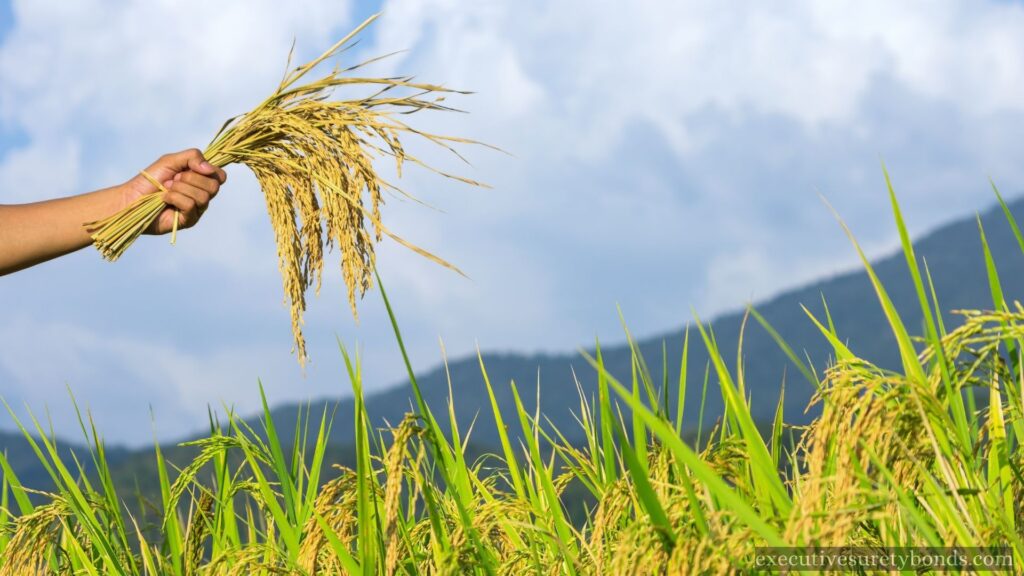Get An Instant Quote on North Dakota – Roving Grain Buyer Bond Now
Introduction
In the heartland of North Dakota, agriculture is not just an industry; it’s a way of life. The state’s fertile soil yields bountiful crops, and at the heart of this agricultural ecosystem are the roving grain buyers who ensure farmers receive fair compensation for their hard work. To safeguard the interests of both buyers and sellers, North Dakota mandates the Roving Grain Buyer Bond. In this comprehensive guide, we’ll explore the intricacies of this bond, its significance, requirements, and the pivotal role it plays in fostering trust within the grain trade.
Unveiling the North Dakota Roving Grain Buyer Bond
The North Dakota Roving Grain Buyer Bond stands as a financial safeguard, ensuring that roving grain buyers uphold their commitments to farmers and the state’s agricultural industry. It serves as a symbol of trust and accountability, instilling confidence in both buyers and sellers.
Understanding the Bond’s Purpose
The primary purpose of the Roving Grain Buyer Bond is to protect farmers and agricultural producers. Roving grain buyers play a crucial role in the grain marketing chain, purchasing crops directly from farmers. The bond acts as a safety net, assuring farmers that they will receive payment for their grains as agreed upon. It also ensures that buyers fulfill their financial obligations to the state, including payment of applicable fees and assessments.
Bond Amount and Cost
The bond amount for roving grain buyers in North Dakota varies based on the expected volume of grain purchases during the licensing period. Buyers must pay a bond premium, which is typically a percentage of the bond amount. The exact cost of the bond premium depends on factors such as the buyer’s financial stability and creditworthiness. Working with an authorized surety bond provider can help buyers find competitive rates.
The Application Process
- Determine Bond Amount: Roving grain buyers must determine the appropriate bond amount based on their expected grain purchases and submit this information to the North Dakota Public Service Commission (PSC).
- Select a Bond Provider: Buyers should choose a reputable surety bond provider authorized to issue bonds in North Dakota.
- Complete the Bond Application: Buyers must complete the bond application, providing relevant financial information and documentation.
- Underwriting Process: The bond provider evaluates the buyer’s financial health and creditworthiness to determine the bond premium rate.
- Bond Issuance: Upon approval, the bond provider issues the Roving Grain Buyer Bond, which must be submitted to the PSC as part of the buyer’s licensing application.
Fostering Trust in Agriculture
Securing the North Dakota Roving Grain Buyer Bond is more than a regulatory requirement; it’s a commitment to the integrity of the grain trade. Buyers are not just financial intermediaries; they are the custodians of trust between farmers and the agricultural industry. This bond ensures that trust is preserved, crops are fairly compensated, and the state’s grain trade remains robust.
Conclusion
The North Dakota Roving Grain Buyer Bond is a vital instrument in maintaining trust and accountability within the state’s agricultural sector. By understanding its purpose, requirements, and application process, roving grain buyers can navigate their roles with confidence, knowing they are part of a system designed to protect the interests of farmers and the agricultural industry as a whole. Compliance with bonding regulations is not just a legal obligation but a commitment to preserving the trust that sustains the lifeblood of North Dakota’s agriculture.
Frequently Asked Questions
Can a roving grain buyer apply for a bond with a lower amount than initially determined if their grain purchases turn out to be lower than expected during the licensing period?
No, in North Dakota, a roving grain buyer must obtain a bond amount that accurately reflects their anticipated grain purchases during the licensing period. The bond amount is determined based on the buyer’s estimated volume of grain transactions, and it’s essential to provide accurate information to the North Dakota Public Service Commission (PSC). Attempting to lower the bond amount after the initial determination may not be permissible, as it could impact the protection of farmers and the state.
What happens if a roving grain buyer fails to fulfill their financial obligations to the state, such as payment of fees and assessments, despite having a bond in place?
While the Roving Grain Buyer Bond primarily serves to protect farmers and ensure payment for grain transactions, it does not relieve the buyer of their responsibility to fulfill financial obligations to the state. If a buyer fails to meet their financial commitments, the state may take legal action to recover the outstanding fees and assessments, even if there is a bond in place. The bond serves as a safety net for farmers but does not absolve the buyer of their responsibilities to the state.
Are there any circumstances under which a roving grain buyer might be exempt from the bond requirement in North Dakota?
Generally, North Dakota requires all roving grain buyers to obtain the Roving Grain Buyer Bond. There are no specific exemptions from this requirement based on the nature of the buyer’s operations or other factors. All roving grain buyers are expected to comply with the bonding regulations to protect farmers and the integrity of the state’s grain trade. Buyers should consult with the North Dakota Public Service Commission for specific bond requirements that apply to their operations.


